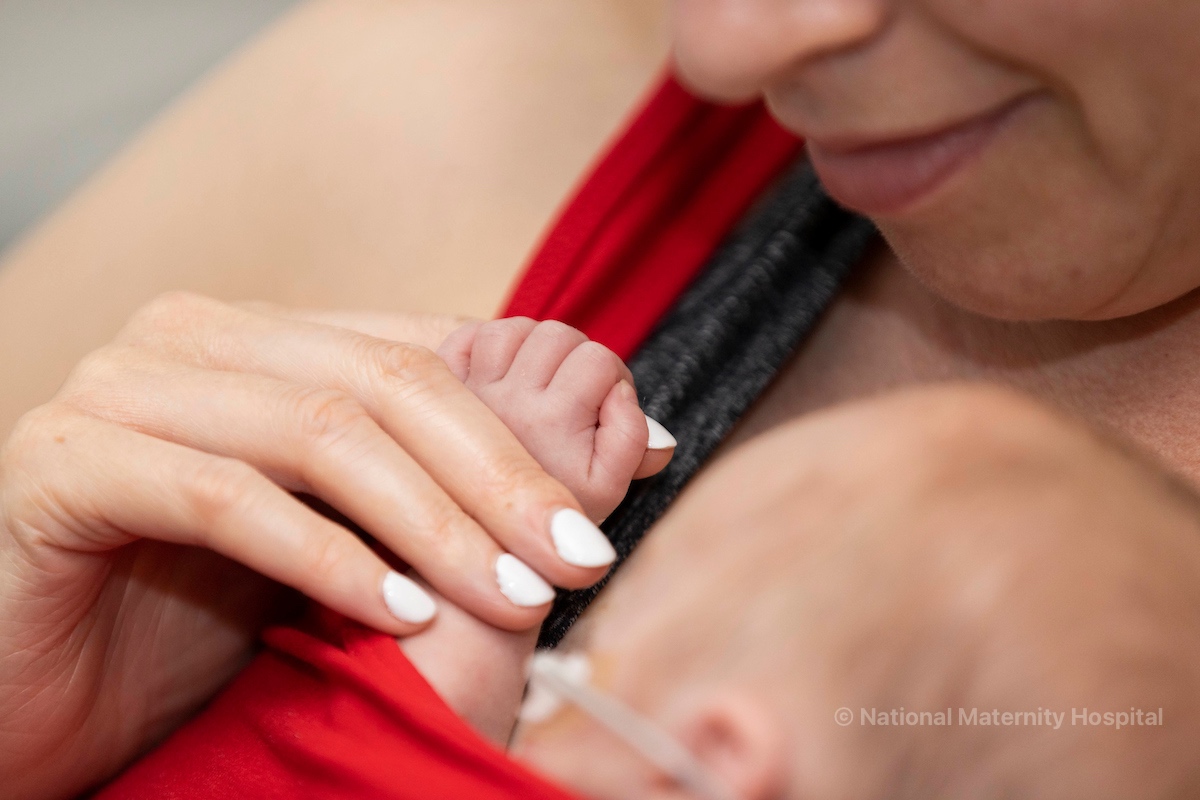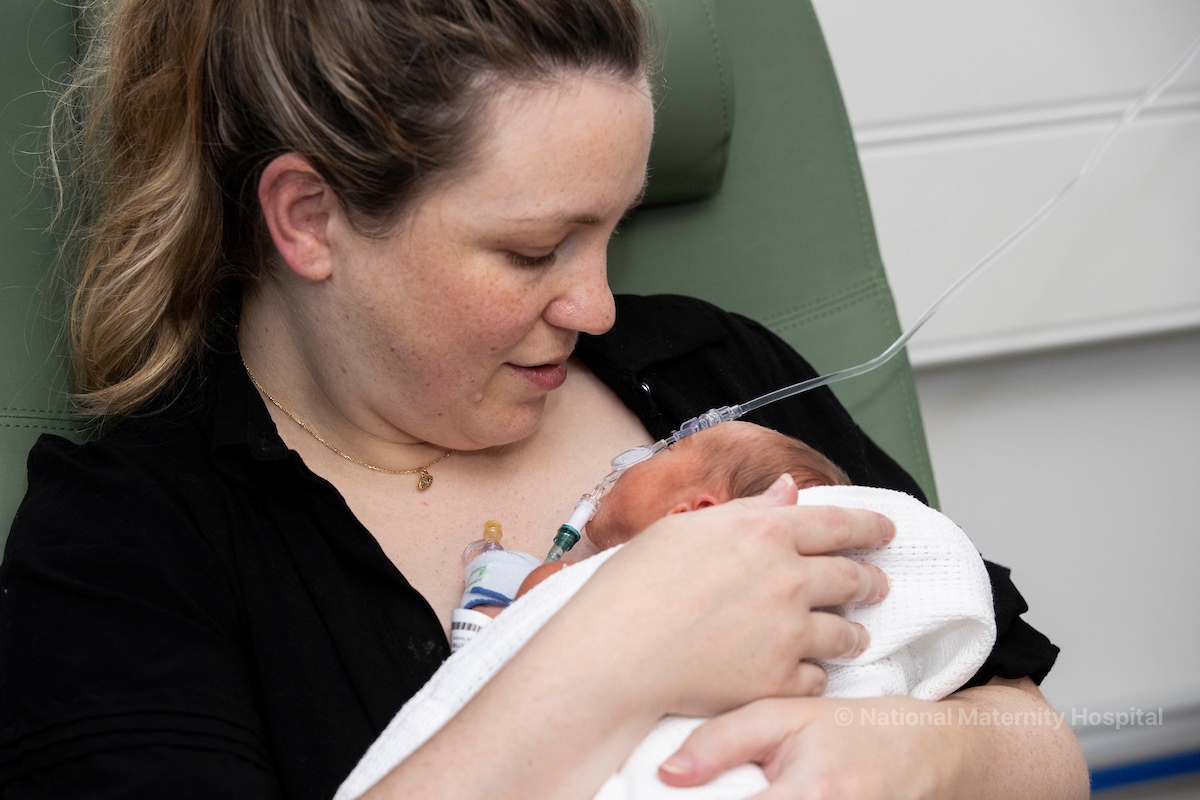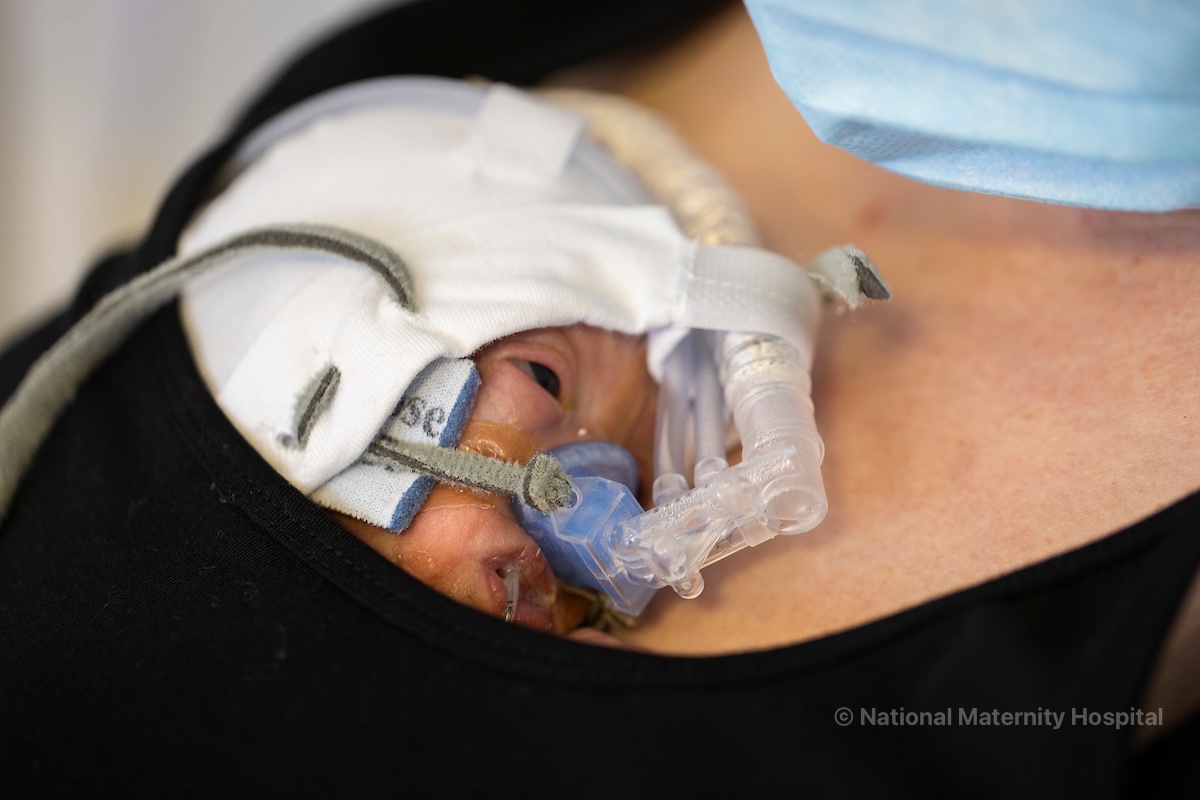In the NICU - Feeding
Feeding your baby
Nutrition helps your baby to grow and develop. It has an impact on your baby’s health now and into the future. Feeding is also a lovely way to bond, to be close to your baby and to take part in their care.
We aim for your baby to feed without delay with your breast milk.
Every baby’s journey is different. Some babies can feed by mouth (oral feeds) straight away, while others need to wait a little time and can receive nutrition in other ways until they are able for oral feeds. Sometimes a combination of techniques are used, including:
- Parenteral nutrition (PN), where nutrition is given intravenously (IV) directly into the blood.
- Tube feeds, where feeds are given through a feeding tube.
- Oral feeds, where feeds are given through the mouth, for example breast and bottle-feeds.
At all stages, there is lots you can do
We encourage you to provide breast milk for your baby, whether you wish to do so long-term, or just while your baby is in the neonatal unit. Every drop of your milk is valuable and your baby will benefit from whatever milk you can provide.
Staff are available to guide and support you throughout, please just ask. If you have any concerns or think you cannot provide your milk, do talk with staff.
We encourage you to take part in feeding your baby, however they feed.
If your baby is not ready for oral feeds, you can help them prepare by offering non-nutritive sucking and skin-to-skin contact, including Kangaroo Care. We encourage you to do this during tube feeds if your baby is able.
Breastfeeding is the most natural way to feed your baby. If your baby is not able to breastfeed at the start, optimise your milk supply so that it is ready for when they are.
Remember – staff are available to support and guide you
You are not on your own. Staff are available to support and guide you throughout – just ask.



Did You Know?
Babies need more nutrition for their size when they are new babies than any other time in their lives! Babies born preterm have higher nutritional needs than babies born at term. This is because they need to ‘catch up’ for the growth they missed during the last stages of pregnancy.
